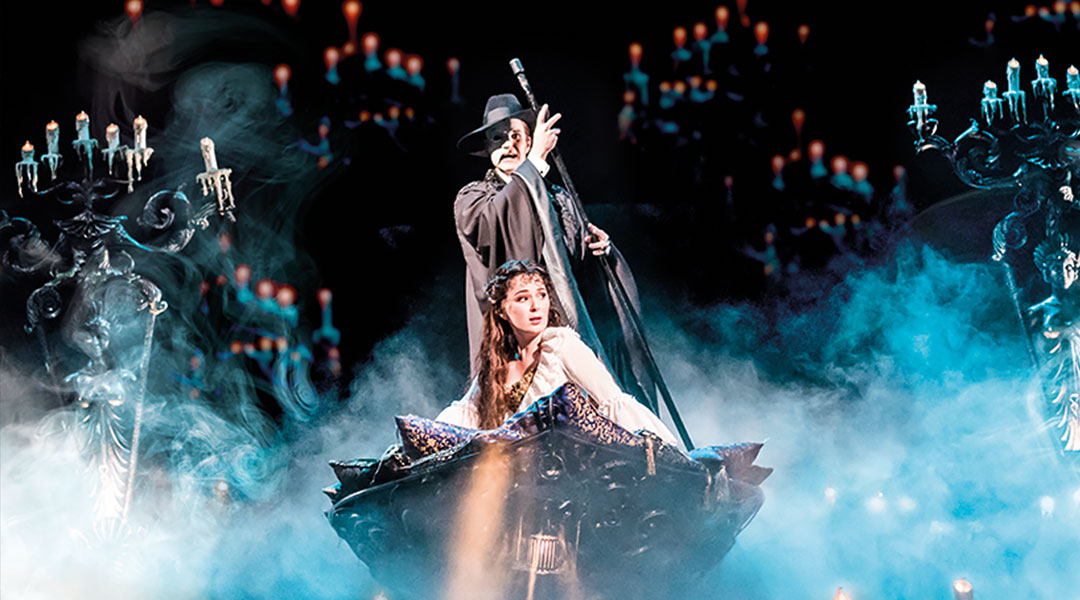Look no further, The Phantom of the Opera is the ultimate anti-hero you should be watching now.
Aren’t we all Christine Daaé at the rooftop scene where she pleads for Raoul to protect her from the Phantom? She sings, “Can I ever forget that sight? Can I ever escape from that face? So distorted, deformed, it was hardly a face.” Then she continues with empathy and some kind of attraction that even she can’t explain. A genius of music and manipulation, Andrew Lloyd Webber’s The Phantom of the Opera is the ultimate pop culture anti-hero we all rooted for. Coming back to the country 7 years later, Phantom opens at the peak of pop culture anti-hero obsession.
Maybe the obsession never really went away at any point. Anti-heroes have forever been etched in every pop culture characters replacing heroes here and there. We are starting to portray leads as flawed beings. Even the recent portrayal of Superman who’s not from this world appeared imperfect as he is. Only now, the bad guys are taking over again—mean, reckless men with redeeming qualities of some sort. It’s not easy to defend one bad guy especially if it’s one Joe Goldberg who doesn’t need defending at all. But watching Phantom again, years after its first show in the country (and many more years after the release of the movie), I am reminded that not all bad guys are Joe and there’s one man (or ghost) who have proven over and over why some can be likable, at the very least.
The Anti-Hero

For the past few months, we have been filled with the obsession with central characters that lack some—others completely devoid of all—the conventional hero traits. It is an obsession that doesn’t necessarily mean adoration. A lot of us have been obsessed with fear, engulfed in fascination to their evil traits. In this post-modernist world, anti-hero doesn’t only necessarily mean Batman or Iron Man. They’re any central character whose story we see in their point of view.
RELATED: How ‘You’ Can Open (And Close) Our Minds About Abusive Relationships
Then comes: The Phantom, a terrifying creature whose own infatuation led him to carry out an exquisite plan to make Christine Daaé fall in love with him—at which he fails (ultimately). Throughout the musical, we see him manipulate Christine into coming with him to his lair and later even holding Raoul hostage for her to agree to his terms. While all his actions seem petty and out of selfish desires, the Opera Ghost has gone through a great deal of pain all throughout his life before and after his life at the Opera, believe it or not.
Erik, The Opera Ghost

Not everyone would know about the life of the Opera Ghost, Erik. He, too, of course, is human. “A man,” Raoul would sing as Madame Giry calls him “a freak of nature, more monster than man”. At the same moment, we would know that he has been used for show, a genius whose face is deformed—Phantom has never known what love meant or what it takes to do good and be good. His facial deformity was used against him, keeping him from seeing the light.
“Fear can turn to love,” the Phantom sings. “You’ll learn to see, to find the man behind the monster… [who] secretly dreams of beauty.” A man who’s never experienced love can easily command someone else to love him back. But there is no one to teach Erik what love meant, and so even as Christine and Raoul tell him that his means won’t make anyone fall in love with him, he won’t budge. They may be a little too late for that kind of lecture. Yet through all the pain he’s put her through, Christine sing to the Phantom, “beautiful creature of darkness, what kind of life have you known?” But rooting for the Phantom doesn’t necessarily mean wanting him to end up with Christine. We’re all for his happiness and it can be found anywhere but the Paris Opera House.
In A Sea Of Monsters

In this day and age where monsters are leading our primetime television and weekly binge-watch list, it’s not easy to find an Opera Ghost whose past only knew of pain and rejection. Joe Goldberg, the most prime example of recent, can’t even justify his obsessions and murderous stints. Sure, he has suffered in the hands of Mr. Mooney (the bookstore’s owner) but he has surely seen good in some people. Yet, of course, we see him grooming Paco into a monster just like himself only a tad bit nicer.
RELATED: Penn Badgley Reminds Everyone: “Love Does Not Do That”
Manipulation and lies continue to prevail in mainstream media, feeding our obsession with these type of men. It can’t all be bad, though. Surely, there’s something fruitful that comes of it—like seeking justice for real victims of real crimes these shows have depicted. As Andrew Lloyd Webber’s The Phantom of the Opera opens at The Theater at Solaire, we’re all only reminded to see the men behind the monsters—not simply to admire but to understand what makes one a terrifying creature like the Opera Ghost. His lies and manipulations may be out of place but who would teach him how to be good if all his life he’s been judged and used. Every genius may have a demon lurking in their heads and just like in Phantom, seeing it right before our eyes is a fascinating sight that thrills the ruling passion these characters have over us. A sea of monsters can’t all just be pure evil underneath. May it be pity, anger, or fear—there will always be an emotion that will drive us to watch out for the next bad guy to set our eyes on and pick from within.







